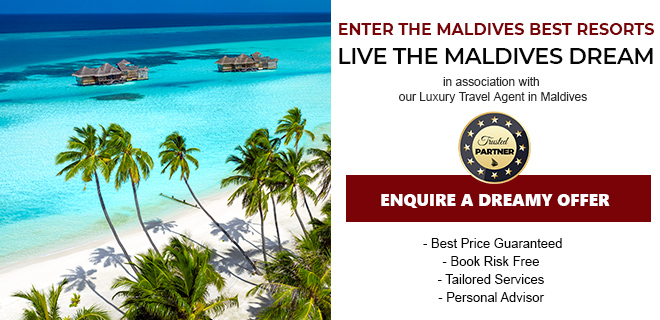Maldives culture is much richer than you might think. It is a fascinating blend of influences from various civilizations, shaped by its strategic location along ancient trade routes. From its unique culinary practices to traditional music, art, and festivals, the Maldives offers a glimpse into a way of life deeply connected to the sea and the islands.
Discover some of the most emblematic traditions of the rich Maldivian culture in this essential guide, so that the next time you visit these islands, you’ll experience them with a deeper understanding and appreciation.
Cet article existe aussi en français ici
The Culture.
Maldives culture has evolved with the times. Locals still eat fish and fishermen still spend days out at sea, but tourism now prevails.
The influence of modern world has spread on many local islands where people try to save and preserve their culture and traditions.
Photo © Sakis / Dreaming of Maldives
Some Maldivians strive to preserve their culture and traditions.
I am a fervent defender of local culture, and as a traveler and expat for decades, I strongly believe that understanding the culture of a country—whether you’re visiting or calling it home—can greatly enhance your experience and help you connect with its people at their very core.

NO to fast travel !
Today, with the trend of fast travel, influenced heavily by Instagram and other social media, has shifted a lot of travel motivation toward capturing visually appealing moments rather than engaging deeply with local cultures.
Many travelers today are looking for picture-perfect locations that fit the “Instagram aesthetic,” often prioritizing these over immersing themselves in the authentic, cultural aspects of a place.
In the Maldives, this applies a lot.
Sadly, many people only know the Maldives for their beautiful beaches and clear waters, but there’s so much more to discover beyond the idyllic scenery : deep-rooted traditions, a rich history, and a vibrant community that has so much to share about their islander’s life.
Let’s go beyond the beaches and lagoons and explore the Maldives culture.

The most emblematic traditions of the Maldives culture
The Maldives is more than just a beautiful destination with its beaches and clear waters. This island nation has a rich culture shaped by various influences and a long history. Beyond its stunning landscapes, the Maldives offers traditions that help you understand its unique identity.
Beyond Maldives landscapes
When you’re in the Maldives, you can also experience vibrant culinary practices that highlight the local seafood, listen and dance on traditional music reminding of Africa, enjoy skilled craftsmanship in wood carving and lacquerware, and take part in the many festivals and celebrations that reflect the local customs and beliefs.
Art and Craftsmanship

Maldivians are renowned for their craftsmanship, particularly in wood carving and lacquer work. A trip to Malé allows you to admire exquisite carvings at the Friday Mosque (Hukuru Miskiy) and explore local markets where artisans sell their handcrafted goods, including lacquered items and woven mats.
One of the most beautiful artcraft you will find in Maldives is the Kasabu Boavalhu, a complex and fine embroidery used in the Libaas, the traditional Maldivian dress.
Rich History

The Maldives, an island nation, boasts a culture deeply intertwined with the sea and island life. Historically, its strategic location along the ancient Spice Route attracted various nations, leading to a unique cultural blend influenced by Indian, African, Sri Lankan, and Arab traditions.
Before becoming Islamic, the Maldives were Buddhists.
Read more about Maldives History
Music and Dance

Music and dance are integral to Maldivian life, heavily influenced by North Indian styles. Bodu Beru, involving traditional drumming and dancing, is particularly iconic. Other forms of dance include the Bandiyaa Jehun, performed by young women dancing and beating metal pots, and the Dhandi Jehun, usually practiced during Eid festive celebrations where men only ( like Bodu Beru ) dance and rhythmically beat wooden sticks.
Read more and listen to the Maldives Bodu Beru
Fishing

Fishing holds a significant place in Maldivian culture, both historically and in daily life. For centuries, it has been the backbone of the local economy and a primary means of sustenance for the Maldivian people. Traditional fishing methods, such as pole and line fishing, are still practiced and celebrated today.
Tuna Fishing in Maldives

Tuna fishing, which is centuries old, is also well established in the Maldives. Maldivian fishermen are particularly renowned for their sustainable fishing techniques, particularly rod and line, which help to preserve fish populations and the marine ecosystem by avoiding accidental catches of other marine species.
Traditional Clothing


Despite being modern, traditional clothing is is still very present in the Maldivian culture. During your stay, you will surely see some Maldivian people wearing them.
For women, the Libaas is a popular traditional dress, often worn for special occasions, while men typically wear some sarong : the mundu (as shown by the Maldivian fisherman in the photo above), or the Feyli – below, during events and ceremonies. These clothes are not just practical; they also symbolize cultural pride and community

The Feyli.
The Maldivian Sarong
A feyli, the typical black and white stripped Maldivian sarong here worn by a Bodu Beru Drummer.
In addition, traditional clothing plays a role during festivals and ceremonies, helping to preserve cultural practices and promote a sense of belonging among the Maldivian people.
Culinary Delights

Freshly caught fish is the cornerstone of Maldivian cuisine, complemented by coconut products, spices, and a variety of fruits and vegetables. Dishes are subtly flavored with spices like chili, cumin, cardamom, and curry leaves. Local favorites include :
- Garudhiya : probably the most popular dish in Maldives. Garudhiya is a tuna fish broth served with rice, lime, chili, and onions. The dish is often garnished with fresh herbs and accompanied by side dishes.
- Kulhi Boakibaa : A special occasion fish cake made with smoked tuna, grated coconut, and rice.
- Mas Huni : Shredded smoked fish mixed with coconut, lime, chili, and onion.
- Fihunu Mas : Barbecued fish basted with chili.
- During celebrations, traditional feasts often feature a Malaafaiy, a beautifully crafted wooden dish filled with a variety of curries, rice, salads, and fruits.
Maldives Language : Dhivehi

The official Maldives language, Dhivehi, is an Indo-Aryan language closely related to Sinhalese. The script, Thaana, is written from right to left. Common phrases include :
- Thank you : Shukuriyaa – pronounce: ( with the u as input ) Shukureeya
- How are you ? : Kihineh ? – pronounce: Kee-Hee-Nay.
- I feel good : Ran’galhu – pronounce: Raangaalu
Celebrations and Festivals
Most Maldivian festivals are Islamic, with Eid al-Adha being the most significant. Unique local traditions, such as Fenkulhi (a playful dye-throwing celebration) and the Bodu Mas pageant, add a local flavor to the festivities.
Other important days include Independence Day (July 26), National Day, and Republic Day (November 11), celebrated with parades and community events.
read more /
Find Maldives and Traditions in
Today We Celebrate the International Women Day
Photo Of The Day : Maldives Bodu Beru in Vintage Mood
Dedicated to the Women of Maldives for The International Womens day
Follow us on Facebook, Youtube and Instagram
for more Maldives Dreams & Stories
[ Official ]
Traveler's Choice
14th Edition


























